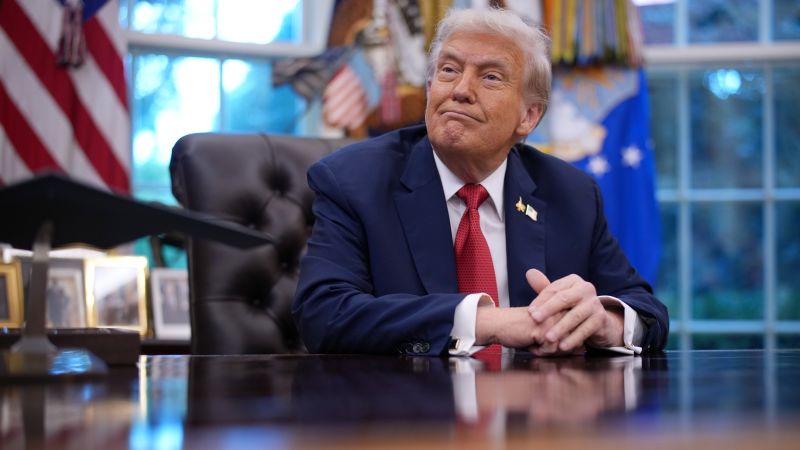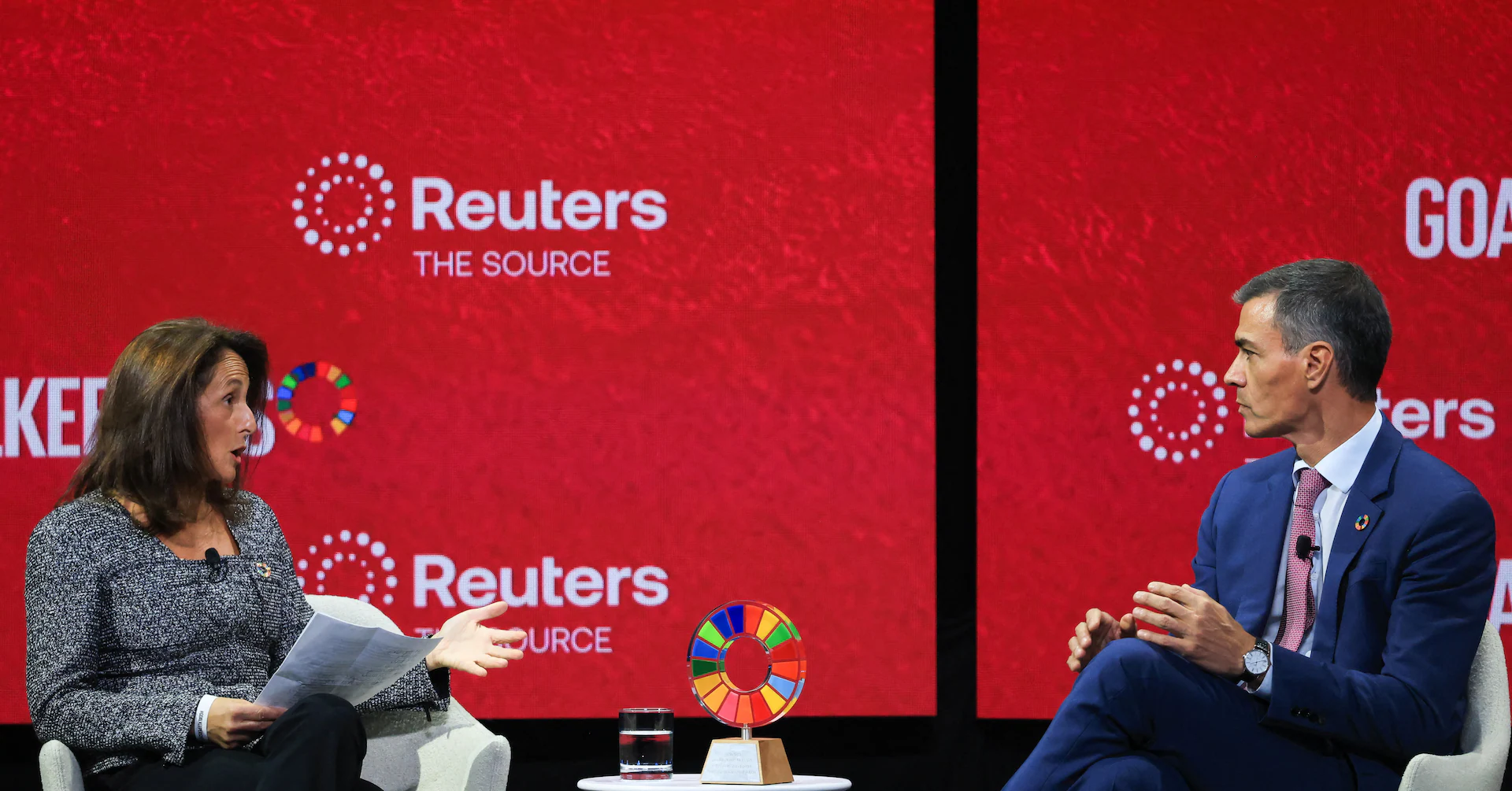
After regularly testing the guardrails of American democracy in his second term, President Donald Trump is now busting through them — at a breakneck pace.
The Justice Department on Thursday secured an indictment of former FBI Director James Comey, just days after Trump urged it to prosecute him and forced out the prosecutor who resisted charging the president’s political foes.
The situation epitomizes how, over the last few weeks, we’ve seen an even more radical version of Trump’s already brazen effort to transform the federal government and centralize power with himself.
The president has taken rapid and drastic steps to remove any obstacles within the government, to enforce loyalty, to punish his enemies and to quell the possibility of public dissent that might arise from his moves.
Trump is creating a system around him that appears increasingly devoid of friction, with the ultimate goal, it seems, to allow him to get whatever he wants.
It’s been a stunning period, even by Trump’s own often-stunning standards.
Perhaps the most significant developments are in his suddenly more overt efforts to target his political enemies — with Comey the preeminent example.
Trump has regularly accused many of his perceivedpolitical opponents of crimes and sometimes weighed in on ongoing legal matters in a way that flouts the norms against politicizing the justice system. But this is different. This is Trump not only getting a long-sought prosecution of a foe, but effectively making it happen himself.
Former Trump White House counsel Ty Cobb told CNN’s Erin Burnett on Thursday night that it was a “tragic day,” calling the Comey indictment a “clear vindictive” and “selective prosecution.”
“The way in which they brought it is problematic for the entire country,” Cobb said. “This is either the end of the rule of law in America or it’s the tipping point against the authoritarian activities that we have seen from this president and his attorney general.”
Over the past week, Trump has begun to wrest control over his long-desired retribution campaign.
He effectively fired a US attorney in Virginia over his refusal to bring charges against Democratic New York Attorney General Letitia James. The next day Trump complained that US Attorney General Pam Bondi wasn’t moving fast enough in such cases. Then he installed a loyalist as the new US attorney in Virginia’s eastern district. And now Comey has been indicted.
Trump claimed earlier Thursday that he was “not making that determination” on charging Comey. But the progression seems unmistakable. Trump made his desires known and removed the obstacle to it; now it has happened.
Even as that news was developing, we learned Thursday that Trump’s Justice Department is taking another extraordinary step against someone Trump explicitly called to prosecute.
Trump said late last month that George Soros and his son should face criminal charges. Two weeks ago he said that “we’re going to look into Soros.” And on Thursday, The New York Times reported that a top Justice Department official instructed more than a half-dozen US attorneys across the country to draft plans to investigate the Democratic billionaire donor.
The memo reportedly even lists possible criminal charges that could be used.
Bondi, speaking in the Oval Office on Thursday, declined to confirm that Soros was being investigated, but she said “everything’s on the table right now,” while Trump soon chimed in saying Soros was a “likely candidate.”
So that’s two instances of Trump explicitly saying who he wants charged. And in one case, after he fired someone who refused to do it, we soon learned that officials had acted in accordance. Whether Trump explicitly ordered anything is kind of beside the point — the pressure was explicit.
Administration officials in Trump’s first term often resisted his impulses. Even Attorney General William Barr, who regularly took extraordinary steps that aligned with Trump’s political agenda, at one point said Trump’s missives about ongoing cases “make it impossible for me to do my job.” He suggested Trump had tried to bully him and said it wouldn’t work.
It’s now working. Trump is publicly laying the retribution roadmap, and the Justice Department is following it. The impulses that were once checked are being acted upon, and Trump is effectively advertising it.
Trump’s efforts to crack down on dissent
Running parallel to this effort is Trump’s growing campaign to minimize dissent.
Even as he’s moved increasingly to use the justice system against his foes and consolidate power, he’s sought to make those who would criticize him over such things think twice about the rhetoric they use.
And it’s hardly just Federal Communications Commission Chairman Brendan Carr’s extraordinary threat, which preceded Jimmy Kimmel’s temporary suspension.
Even as some on the right tried to minimize Carr’s role and pretended this was just the free market at play, Trump doubled down on using the federal government to do very similar things. He suggested that broadcast outlets that are too critical of him should lose their licenses. He signaled they — including Kimmel — could even be charged criminally for illegal campaign contributions.
“I think we’re going to test ABC out on this,” Trump said on Truth Social earlier this week when Kimmel returned to air. “Let’s see how we do.”
The president and allies have sought to use Charlie Kirk’s assassination to assert that criticisms of Trump’s moves as “authoritarian” or “fascist” are beyond the pale (this despite Trump having lodged the same attacks on his own foes). They’ve leapt to suggest the political left’s rhetoric is to blame even before there was any evidence about motive in the Kirk case and a later shooting at an Immigration and Customs Enforcement facility in Texas.
Trump’s also launched dubious lawsuits against media outlets like The Wall Street Journal and The New York Times. And his Pentagon recently launched an extraordinary effort to make credentialed journalists not publish material it doesn’t authorize.
While Trump’s efforts to police speech are largely predicated on the Kirk assassination, they’re going well beyond it.
More examples of pushing boundaries
And these aren’t the only issues on which the handbrakes are apparently off.
Trump’s Office of Management and Budget this week threatened mass firings of federal employees if Democrats don’t agree to avoid a shutdown next week on Trump’s terms.
The president has also seemingly turned Health and Human Services Secretary Robert F. Kennedy Jr. loose and pushed his administration more into sensitive medical areas. And it’s not just the vaccine moves and the bizarre event this week linking autism to Tylenol; it’s also new actions that suggest the administration could soon limit access to the abortion pill mifepristone on safety grounds, despite years of studies showing it’s safe and effective.
The administration has also in recent days floated a remarkable potential economic bailout of Argentina — a move that is clearly aimed at helping its embattled, Trump-ally president, Javier Milei.
And Trump has also sought to exert a remarkable level of unilateral control over the military and its use of deadly force. After going to extraordinary lengths to dispatch troops on US soil, he has in recent weeks expanded this to launch legally suspect strikes on alleged drug boats in international waters. Trump is basically arguing for the ability to kill people outside of a declared war, and based on his say-so.
Any of these issues would be massive controversies all on their own in any other political era, even potentially for some conservatives.
They’re also the kinds of things we often learned Trump had floated or tried to do in his first term, but was talked out of by the more establishment-oriented officials that surrounded him.
Many of those people have been replaced by MAGA true-believers in this second term. The ones who might still stand in the way are increasingly being unceremoniously cast aside, along with the political norms and legal constraints that presidents usually respect.
And the skids have clearly been greased for an even more revolutionary change in how American government operates.



